~ Random House, Feb 2018
How does one review a book of this nature- a memoir? Memoirs have the undue advantage of a certain point of view, and rely on memory and narration of facts from the unique perspective of the writer. Tara chooses to write faithfully true to herself, in a form of narrative that dare not be denied. Memoirs make for some of the more interesting forms of ‘non-fiction’ there is. This one is no exception.
Who’s to say whether the events occurred the way they did, because to the memoirist, they absolutely did! So here we have Tara Westover’s version of her grasp of what it is to be educated; her trials and tribulations and what led her to an undeniable need to pen her memoir. I’m glad she arrived where she did and I rejoice with her, even as my heart hurt when I put the book down.
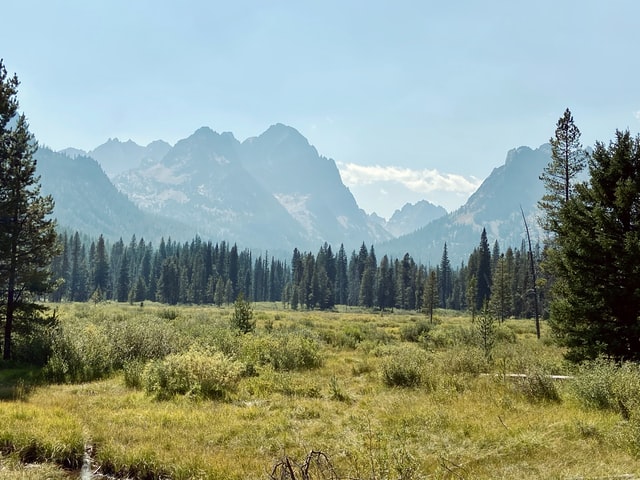
Tara’s life was remote for the first sixteen years of her life. It is only at age seventeen that she steps into a classroom for the very first time. She draws you into the physical arena of her upbringing at Buck’s Peak, a mountain she reveres as she draws you in and exhibits her inner patchwork. This is in Idaho State, in North America. Her parents are deemed ‘survivalists’.
There occur fairly severe accidents when Tara’s father forbids any medical intervention. We gulp in horror as the plot unveils.

The Westover kids never visit doctors or hospitals, and it is the mother, with her home remedies, and healing powers that continually cares for them. You read in wonderment at first, but beyond a point, your being protests as it is deeply aggrieved. This is injustice, is it not!
Whether the kids were homeschooled is questionable- it was all very informal and haphazard. The hope that the ‘plot’ would veer toward sanity and transform to become more civil, kept me going; I wanted to shake the young girl’s mother and make her see what Tara was making me see, and feel and live.
Westover’s writing is devoid of embellishments, and in her simplicity lies great depth of emotion. I was hooked from word go. I read on, unable to cast away Buck’s Peak, or Tara’s life from me.
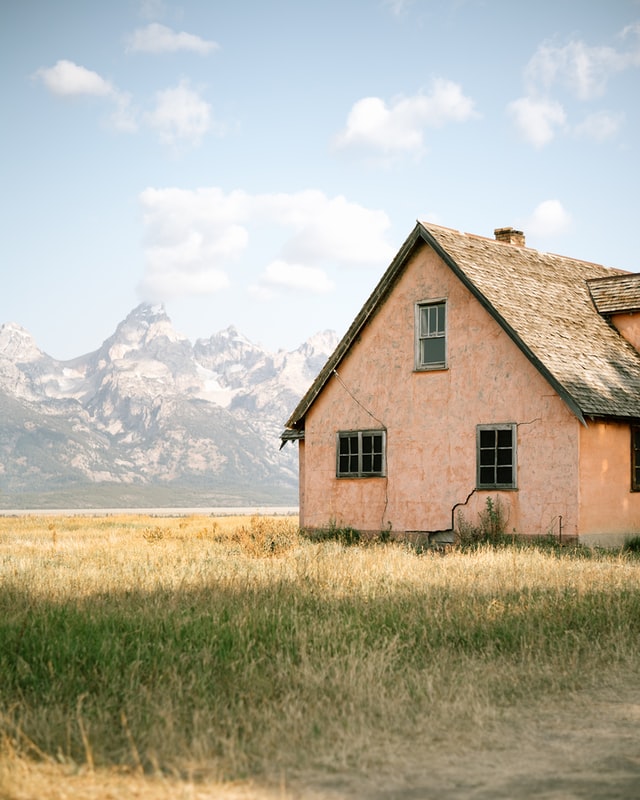
The large family had been disallowed a formal education because the head of the family, Tara’s father doesn’t believe in any formal ties with the government of the land and the children are neither vaccinated, nor do they have birth certificates. What a life they lead, on the junkyard, and as *Mormons! Even those in the family who can sense and feel, look the other way, as life continues- unjust often, under the tyranny of a father whose mind is not in his control; manic and obsessive with solid and unshakable faith in the rightness of it all!
The reader’s mind protests; if only you could alter this script, and you read on, obsessed with this unlikely hope that it might change.
How does one dispute such strongly-held beliefs? How do you confront someone whose strength lies in unwavering Faith that the outside world is mere make-believe, and it is the world created within this physical one, at hand, that is real.
As one reads on, one wonders whither the madness of this one man, whose wife cannot but do his bidding, as do his children; it is not even a struggle, because it just is.
While Educated is not a thriller, the narrative takes on the form of one. I held my breath at many a juncture, wondering on the outcome of Shawn’s assaulting Tara physically repeatedly. This is her older brother. One senses that it is not the kind of assault one might imagine: a straight-on beating. This is an assault on Tara’s soul; her body a tool in his hands. Yet, the young Tara is unable to free herself from neither the brother, nor her father.
We are wedded to our destinies willy nilly.
Even when the author travels to the state college, to undergo a formal education, she carries within her the strict framework of her Mormon upbringing; in shackles even as she is free to choose. Clearly gifted and exceedingly diligent and persevering, she is able to get into Cambridge, at first, and is later awarded a Gates scholarship and ends up in Harvard. Yet, at all times, the family haunts her with all that is hammered into her soul; the horse whose nailed hooves are improperly mounted.
I quote: “What they do to us, how they form our impressions of ourselves, of our view of us against the world, our entire world.”
Tara yearns for acceptance of those who would reject her. When her sister Audrey speaks of Shawn’s ill temperament and his violent ways, she is relieved -at last she has an ally. But it is not to last, as Audrey too eventually rejects Tara. Her parents visit her in college, if only to reiterate how evil her ways are and that she is in denial. Yet she would rather be abandoned. They visit her in Harvard again, in the hope of reconverting her – but, and thank God for that, on the day of their departure, she rejects their proposal. She is then formally pronounced an Outcast. Living with this rejection is another harrowing story which has her in its grip night and day.
It is a longwinded tale, which doesn’t quite end. Tara pays the price for her education, and I ask myself- what is education after all? If it awakens the hunger in you to learn, and to keep learning- isn’t it that which hearkens, and leads you down a road that fuels the fire in our souls? Without this burning light, who are we?
Tara is a gifted writer, who had me chewing my nails. Every chapter ends with a worthy quotable quote, and one among others that made me ponder deeply, “….the choices people make, together and on their own, that combine to produce any single event. Grains of sand, incalculable, pressing into sediment, then rock.”
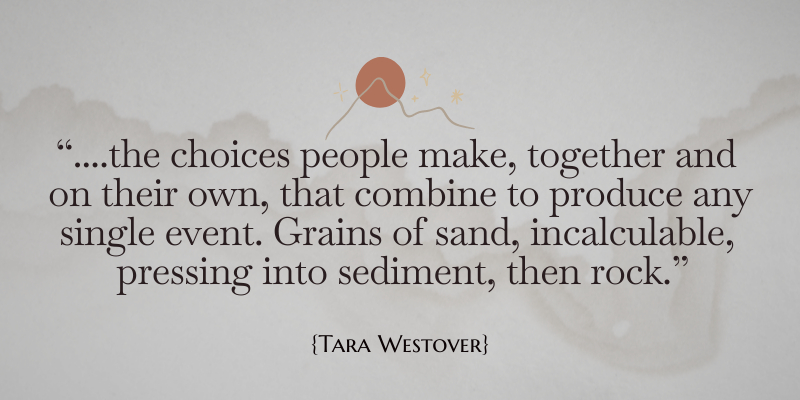
She stews peaches with her mother, helps deliver babies, and works hard in the junkyard with her brothers and father as a young adolescent. Later, she repeatedly returns home to find something that would signify a saner life, or more acceptance of her need for formal education, but it is Buck’s Peak, the mountain she calls the Princess, that is her true mother, who awaits her return. They fuse.
At many a juncture, the telling touched a chord, and stirred within me an ache of resonance with Tara. I identified with her emotions, as is the way with fine writing – and I quote: ‘Not knowing for certain, but refusing to give way to those who claim certainty, was a privilege I had never allowed myself. My life was narrated to me by others. Their voices were forceful, emphatic, absolute. It had never occurred to me that my voice might be as strong as theirs.”
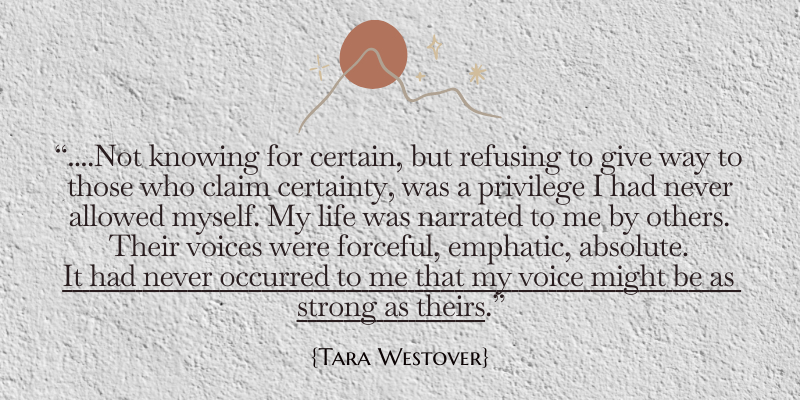
How many among us might grasp these lines as our own?
Too many to count.
These words above are the pivot upon which this entire memoir rests- she finds her voice, but not before she has lived many lives and undergone years of torture. Everyone of us needs to find a voice that is unique and endowed with one’s recognizable timbre.
Education is a lifelong process, is it not?
©KamaliniNatesan
* Mormons use the Book of Mormon alongside the Bible in teaching and study. They believe that the Book of Mormon tells the story of God’s dealings with the ancient inhabitants of the American Continent, including a visit by the risen Jesus to the people of the New World. They follow a strict healthy lifestyle that doesn’t allow them to consume alcohol, tobacco, coffee or tea. Family life, good deeds, respect for authority and missionary work are important values in Mormonism.

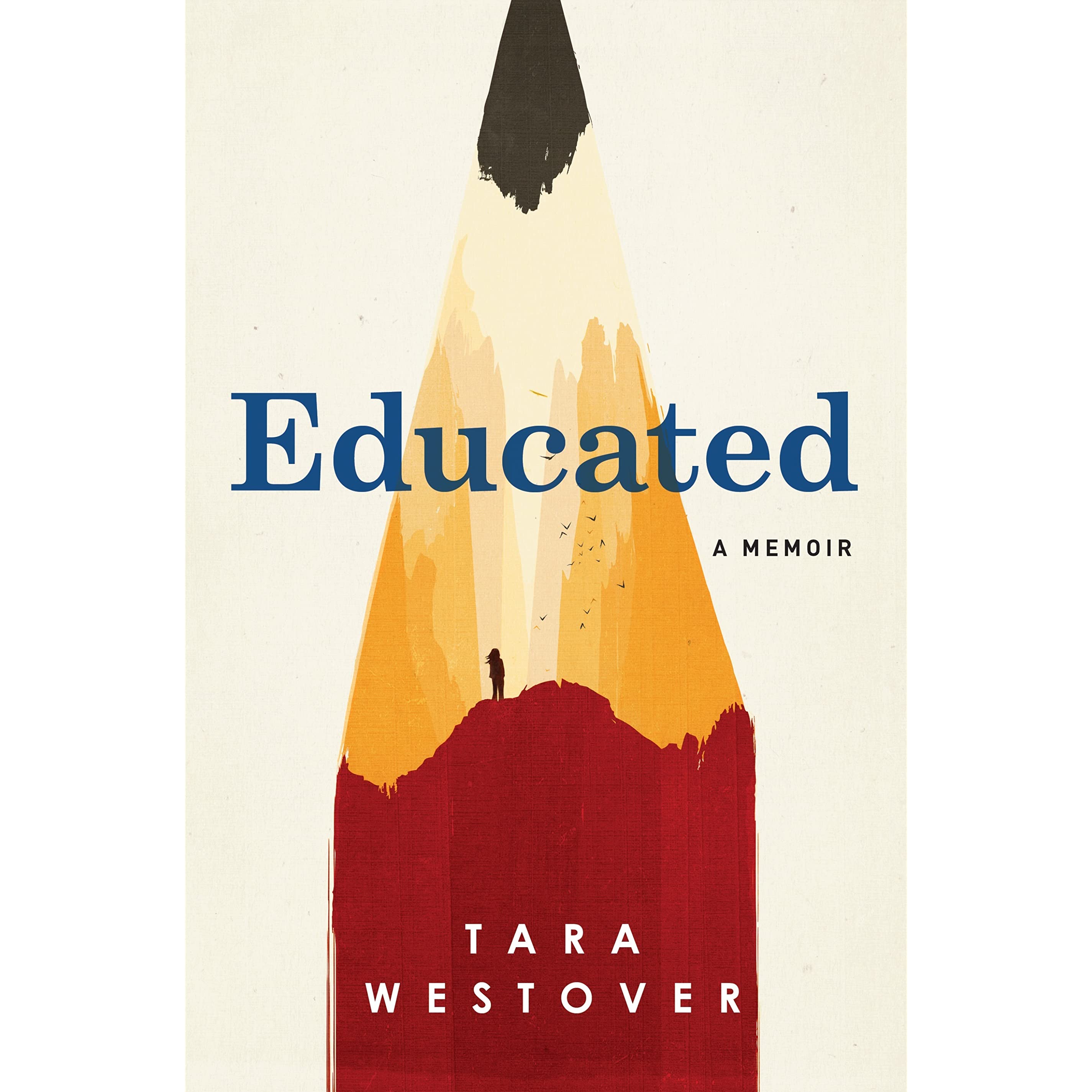
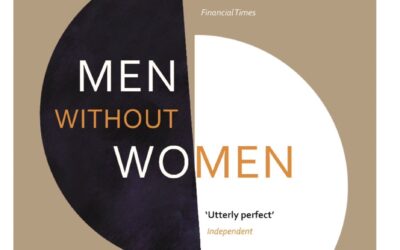
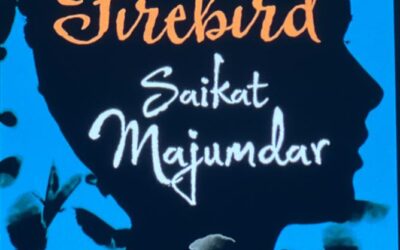

0 Comments